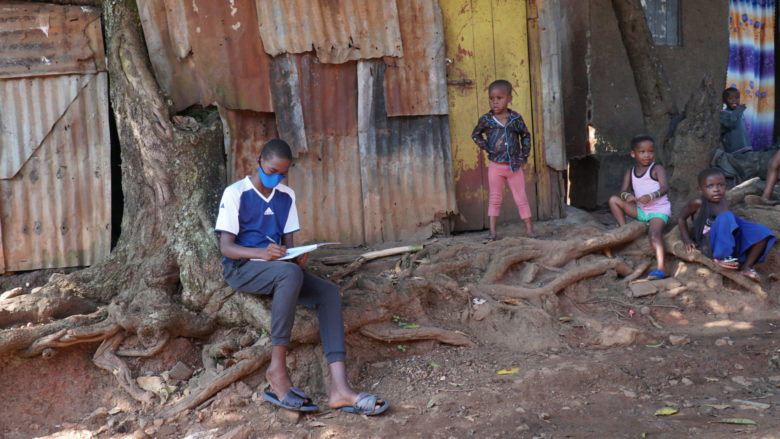Education during the time of COVID–19 in Uganda

With a one-day warning, the schools were closed. 15 million children were sent home. Ugandans were confined to their homes from 19:00 – 06:30. Teachers scrambled to give students study materials to keep them learning at home.
When it is a choice between eating or buying study materials or the monthly TV
subscription, the stomach usually dictates the priorities.
The government made lessons available through print, the radio, television, and the internet.
Lessons are printed 3 times a week in Uganda’s largest selling newspaper. Many Ugandans have
meager resources, living hand to mouth. They struggle to scrap together the 6,000 UGX (1.5€) to buy
the paper 3 times weekly. It cost 26,000 UGX (6.5€) monthly to be able to see the lessons that are
being taught there. When it is a choice between eating or buying study materials or the monthly TV
subscription, the stomach usually dictates the priorities. Many parents and guardians had struggled
and sacrificed to raise the funds to educate their children. Parents knew they would not need as
much food at home since their children would be feed at the boarding school. Now they were faced
with additional costs of feeding, housing and acquiring study materials for their children.
The morning sun creates beams of light shimmering through the smoke as women stoke their charcoal stoves to prepare chapatis for breakfast.
What does education in the time of COVID–19 look like? Leaving our house and walking less than 1
kilometer brings me into a slum. The road outside our gate is a recently tarmacked road in excellent
condition. Walking downhill to the next T-junction and crossing the road, bring you into one of the
many slums in Kampala. The tarmac ends. Adequate garbage disposal does not exist. The air is filled
with the smell of rotting garbage. Smoke arises from the toxic fumes of burning heaps of plastic bags
and bottles. The morning sun creates beams of light shimmering through the smoke as women stoke
their charcoal stoves to prepare chapatis for breakfast.
The stench of human sewage steaming down the muddy path is mixed with all the other odors permeating the air. A vacuum truck is parked in the middle of the path pumping the overflowing blocked sewer. Throngs of people hold their nose while they strive to keep their shoes clean as they negotiate past the vehicle and the water filled trenches created by the tires in the soft mud.
High walls protecting the properties create long shadows in the morning sun making the path seem even more narrow. The tropical downpours have eroded the soil exposing large stones, making it impossible for vehicles to pass. A man pushes his bicycle through the large stones announcing in a loud voice that he has charcoal for sale.
Florence is a single mother. She lives in a two-room house with four children and a sister who needs assistance with her epilepsy. There is no running water and has to be collected in jerrycans from the closest water point. There is a pit latrine behind the building.
I miss school. When I was at school, if you didn’t understand,
you go and consult the teacher. Now there is no one I can ask.
At 8 in the morning the lesson beings. There is a small 10-inch old tube television high on the shelf in the room. Elijah (12 years old) and Joshua (14 years old) watch as a teacher stands with his back towards the screen speaking and writing notes on the white board. The boys write their notes as they follow the 1-hour long program. The rest of their lessons are done with the materials they have from the newspaper. It is not easy. “I miss school. When I was at school, if you didn’t understand, you go and consult the teacher. Now there is no one I can ask” Joshua stated.
The future of education is uncertain. When the schools will be opened is not clear. No one knows how effective the current study methods have been. Fida International has been supporting vulnerable children like Elijah and Joshua to continue their education. We have supported them by making the school materials available to them during the pandemic. Education is key to a better future.
